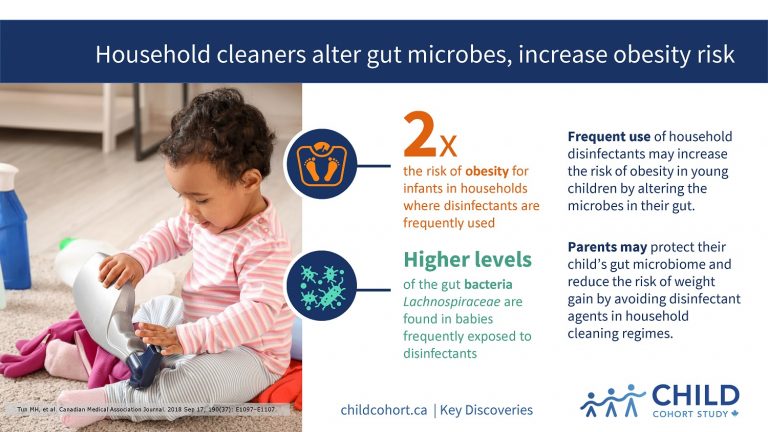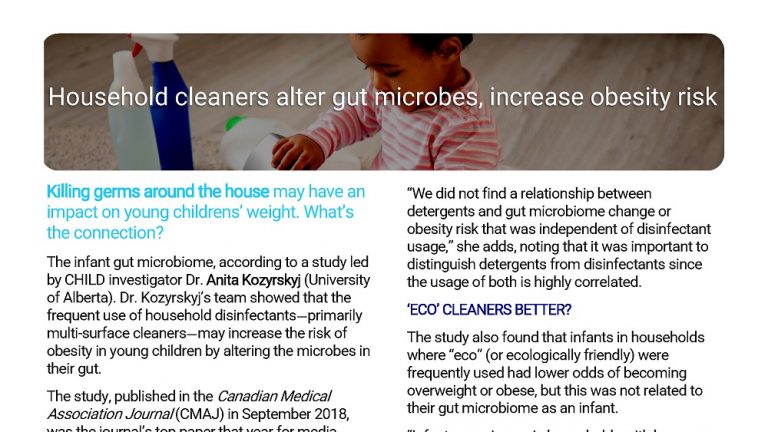Household cleaners alter gut microbes, increase obesity risk
Killing germs around the house may have an impact on young childrens’ weight. What’s the connection?
The infant gut microbiome, according to a study led by CHILD investigator Dr. Anita Kozyrskyj (University of Alberta).
Dr. Kozyrskyj’s team showed that the frequent use of household disinfectants – primarily multi-surface cleaners – may increase the risk of obesity in young children by altering the microbes in their gut.The study, published in the Canadian Medical Association Journal (CMAJ) in September 2018, was the journal’s top paper that year for media coverage, which included Newsweek, The Globe and Mail, and CBC, and was listed by CMAJ among its “Top 25 articles of 2018.”
DOUBLE THE RISK
“We found that infants living in households where disinfectants were used at least weekly were twice as likely to have higher levels of the bacteria called Lachnospiraceae at three to four months of age,” says Dr. Kozyrskyj.
“At three years of age, those same children had a higher body mass index (BMI) than children who were not exposed to frequent home use of disinfectants as infants.”
Her research team used data from 757 children participating in CHILD and examined the effect of exposure to three categories of household cleaners – disinfectants, detergents and eco-friendly products – on the infant gut microbiome.
“We did not find a relationship between detergents and gut microbiome change or obesity risk that was independent of disinfectant usage,” she adds, noting that it was important to distinguish detergents from disinfectants since the usage of both is highly correlated.
‘ECO’ CLEANERS BETTER?
The study also found that infants in households where “eco” (or ecologically friendly) were frequently used had lower odds of becoming overweight or obese, but this was not related to their gut microbiome as an infant.
“Infants growing up in households with heavy use of eco cleaners had lower levels of different types of gut microbes such as Enterobacteriaceae. However, we found no evidence that these specific microbiome differences were associated with the reduced obesity risk,” said Mon Tun, formerly a PhD student at the University of Alberta and first author of the study.
Tun speculated instead that mothers in households using eco products may also eat healthier food and, thus, have healthier microbiomes during pregnancy, which may in turn have a positive impact on the newborn microbiome and later weight gain.
“Our findings suggest that parents may help to protect their child’s gut microbiome and reduce the risk of weight gain and obesity by avoiding disinfectant agents in household cleaning regimes,” says Dr. Kozyrskyj.
“Bottom line: we recommend against the frequent use of disinfectant cleaners in households with infants and suggest that parents consider alternative cleaning products.”





